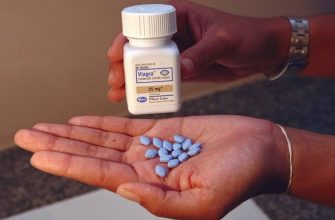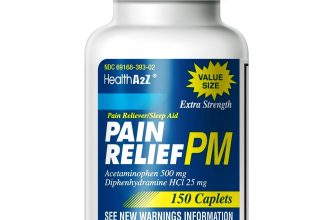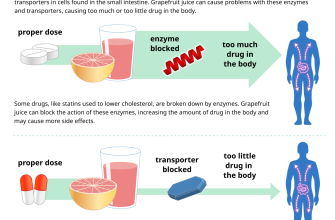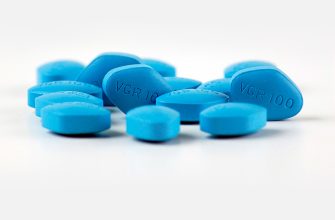Consider Viagra 50mg as your starting point. This dosage works well for many men experiencing erectile dysfunction. However, individual responses vary. Your doctor will help determine the right dose for you, based on your health and medical history.
Remember, Viagra 50mg should be taken as directed by your physician. Never increase the dosage without consulting them. Taking more than prescribed won’t necessarily enhance results and could potentially lead to adverse effects. Pay close attention to any instructions provided.
Side effects, although uncommon, are possible. These may include headache, flushing, or nasal congestion. If you experience any severe or persistent side effects, contact your doctor immediately. Open communication with your healthcare provider is paramount for optimal treatment. They can help manage any potential issues.
Important note: Viagra interacts with certain medications. Always inform your doctor about all medications and supplements you are currently taking. This is crucial for safe and effective treatment. A thorough medical evaluation before starting Viagra is highly recommended.
- Viagra 50 mg Dosage: A Comprehensive Guide
- Understanding Viagra and its Mechanism
- How PDE5 Inhibition Leads to Erection
- Important Considerations
- Viagra 50mg: When is it Prescribed?
- Factors Influencing Viagra 50mg Prescription
- Additional Considerations
- How to Take Viagra 50mg Correctly
- Timing and Food
- Dosage Adjustments
- Important Considerations
- Viagra 50mg: Potential Side Effects
- Interactions with Other Medications
- Viagra 50mg and Alcohol Consumption
- Viagra 50mg and Food
- Fatty Foods and Absorption
- Grapefruit Juice Interaction
- Alcohol Consumption
- Best Practices
- When to Consult a Doctor Regarding Viagra 50mg
- Other Reasons to Seek Medical Advice
Viagra 50 mg Dosage: A Comprehensive Guide
The recommended starting dose of Viagra is 50 mg, taken as needed, about one hour before sexual activity.
Your doctor might adjust this based on your response and any pre-existing health conditions. Let’s explore factors influencing dosage:
- Individual Response: Some men find 50mg sufficient, while others may require a lower (25mg) or higher (100mg) dose. Always follow your doctor’s guidance.
- Health Conditions: Certain conditions, like liver or kidney problems, can affect how your body processes Viagra. Your doctor will tailor the dosage accordingly.
- Medications: Interactions with other medications can influence Viagra’s effectiveness and potential side effects. Always inform your doctor of all medications you are taking.
Here’s what you should know about taking Viagra 50mg:
- Timing: Take it approximately one hour before anticipated sexual activity. The effects may begin sooner or later depending on individual factors.
- Frequency: Do not take more than one 50mg tablet in a 24-hour period.
- Food: While food doesn’t significantly impact absorption, avoid fatty meals as they might slightly delay the onset of effects.
- Alcohol: Excessive alcohol consumption can reduce effectiveness and increase the risk of side effects. Moderate alcohol intake is generally acceptable.
Important Note: Viagra is a prescription medication. Always consult your doctor before taking it. They can assess your health, discuss potential risks, and determine the appropriate dose for you. Never exceed the prescribed dosage.
Possible side effects include headache, flushing, nasal congestion, and visual disturbances. Seek immediate medical attention if you experience a prolonged erection (priapism) or vision problems.
Understanding Viagra and its Mechanism
Viagra, or sildenafil, works by inhibiting an enzyme called phosphodiesterase-5 (PDE5). This enzyme usually breaks down a chemical messenger, cyclic guanosine monophosphate (cGMP), in the penis. High cGMP levels relax the smooth muscles in blood vessels, allowing increased blood flow.
How PDE5 Inhibition Leads to Erection
By blocking PDE5, Viagra increases cGMP levels. This increased cGMP leads to more relaxed blood vessels, resulting in improved blood flow to the penis. Sexual stimulation is still necessary to trigger the erection; Viagra simply enhances the body’s natural response. The effect typically lasts for four to five hours. Dosage affects the duration and intensity of the effect.
Important Considerations
Consult your doctor before taking Viagra, especially if you have heart problems, high or low blood pressure, or are taking nitrates. Viagra interacts with certain medications, so complete disclosure of your medical history is critical. While generally safe when used as directed, side effects are possible and include headaches, flushing, and nasal congestion.
Viagra 50mg: When is it Prescribed?
Viagra 50mg is typically prescribed for men experiencing erectile dysfunction (ED), specifically when a lower dose hasn’t provided sufficient efficacy or if a higher starting dose is deemed appropriate by the physician. The doctor considers several factors before prescribing this dosage.
Factors Influencing Viagra 50mg Prescription
Severity of ED: The doctor assesses the frequency and severity of ED symptoms. If mild ED is present, a lower dose may suffice. More significant difficulties may warrant starting with 50mg.
Individual Response: Responses to Viagra vary. Some men find 25mg effective, while others need a higher dose like 50mg for optimal results. This is determined through trial and error under medical supervision.
Patient Health: Pre-existing conditions like heart problems, liver or kidney disease, and certain medications can influence the choice of dosage. A physician will adjust the dose based on the patient’s overall health profile. Always discuss any underlying health issues with your doctor.
Additional Considerations
Age plays a role; older men may require a lower starting dose due to potential interactions with other medications. Concurrent medication use requires careful consideration to avoid harmful drug interactions. Never take Viagra without a doctor’s prescription. Always inform your physician about all medications you’re currently taking.
Remember, the 50mg dose is a common starting point for many men. However, individual needs vary greatly, and your physician will work with you to find the best and safest dosage for your circumstances.
How to Take Viagra 50mg Correctly
Take Viagra 50mg exactly as prescribed by your doctor. Typically, you’ll take one tablet about 30-60 minutes before sexual activity. Swallow the tablet whole with a glass of water. Do not crush, chew, or break the tablet.
Timing and Food
Viagra can be taken with or without food, but a high-fat meal may delay its onset. For predictable results, consider taking it on an empty stomach or with a light meal.
Dosage Adjustments
Your doctor will determine the appropriate dosage based on your individual needs and health. Never adjust your dosage without consulting your physician. If 50mg proves ineffective or causes side effects, discuss alternative options with your doctor.
Important Considerations
Alcohol consumption can interact with Viagra and may worsen side effects. Limit alcohol intake while using this medication. Certain medications can also interact with Viagra, so inform your doctor of all other medications you’re taking, including over-the-counter drugs and supplements. If you experience chest pain, dizziness, or prolonged erection (more than 4 hours), seek immediate medical attention.
Viagra 50mg: Potential Side Effects
While Viagra 50mg effectively treats erectile dysfunction, it’s crucial to be aware of potential side effects. These vary in severity and frequency.
Common side effects, affecting many users, include:
- Headache
- Facial flushing
- Nasal congestion
- Indigestion
- Visual disturbances (blurred vision, sensitivity to light)
Less common, but still possible, side effects are:
- Muscle aches
- Dizziness
- Back pain
- Hearing problems
- Prolonged erection (priapism – seek immediate medical attention)
Serious side effects are rare but require immediate medical help:
- Sudden vision loss
- Sudden hearing loss
- Chest pain
- Stroke
- Heart attack
Note that this isn’t an exhaustive list. Individual reactions differ. Consult your doctor for a personalized risk assessment and discuss any concerns.
If you experience any unusual or worrying side effects, stop taking Viagra 50mg and contact your physician immediately. They can provide tailored advice and management.
Interactions with Other Medications
Always inform your doctor about all medications you are taking, including over-the-counter drugs, herbal remedies, and supplements. This includes nitrates, often prescribed for chest pain. Combining Viagra with nitrates can cause a dangerous drop in blood pressure.
Certain medications for high blood pressure, such as alpha-blockers, can interact with Viagra, potentially leading to dizziness or fainting. Your doctor can help you manage this risk by adjusting dosages or choosing alternative medications.
Viagra can interact with protease inhibitors, used to treat HIV. This interaction can increase Viagra’s concentration in your blood, potentially leading to side effects. Your doctor will monitor you closely if you are taking both.
Specific medication interactions vary greatly. Consult your doctor or pharmacist for personalized advice before combining Viagra with other medications. They can provide accurate, up-to-date information about potential interactions and help you develop a safe treatment plan.
Never self-medicate or adjust dosages without professional guidance. This is crucial for preventing potentially harmful interactions.
Viagra 50mg and Alcohol Consumption
Mixing Viagra 50mg with alcohol can lead to undesirable side effects. Avoid combining them.
Alcohol can intensify Viagra’s side effects, such as headaches, flushing, and low blood pressure. This combination may also increase the risk of fainting.
The severity of these effects varies depending on individual factors like your health, metabolism, and the amount of alcohol consumed. A small amount of alcohol might have minimal impact, but significant consumption increases the risks considerably.
Here’s a table summarizing the potential interactions:
| Alcohol Consumption | Potential Side Effects |
|---|---|
| Moderate (1-2 drinks) | Increased risk of headache, flushing, dizziness. |
| Heavy (3+ drinks) | Significant increase in risk of low blood pressure, fainting, and heart-related problems. |
For safe and effective use, consult your doctor before mixing Viagra 50mg with any alcohol. They can assess your individual health profile and provide personalized advice.
Viagra 50mg and Food
Taking Viagra 50mg with a high-fat meal can delay its onset of action. Expect a slightly slower effect compared to taking it on an empty stomach. This delay isn’t usually significant for most, but it’s something to keep in mind if you need a quick response.
Fatty Foods and Absorption
Fatty foods slow down the absorption of Viagra into your bloodstream. This is because the body prioritizes digesting fats. A lighter meal or snack is recommended for faster absorption and more predictable results.
Grapefruit Juice Interaction
Avoid grapefruit juice when taking Viagra 50mg. Grapefruit contains compounds that can interact with Viagra, potentially increasing its concentration in your blood and leading to unwanted side effects. This includes a higher risk of adverse events.
Alcohol Consumption
Moderate alcohol consumption is generally acceptable, but excessive alcohol can lower blood pressure and increase the risk of side effects when taking Viagra 50mg. Consult your doctor if you have concerns about combining alcohol with this medication.
Best Practices
For optimal results, consider taking Viagra 50mg with a light meal or on an empty stomach. Always follow your doctor’s instructions regarding dosage and timing.
When to Consult a Doctor Regarding Viagra 50mg
Schedule an appointment immediately if you experience chest pain, irregular heartbeat, or sudden vision changes after taking Viagra 50mg. These could indicate serious side effects requiring prompt medical attention.
Other Reasons to Seek Medical Advice
Consult your doctor if you experience prolonged erections (lasting more than four hours), a condition known as priapism. This is a medical emergency and needs immediate treatment. Also, seek advice if your 50mg dose isn’t effective, or if you experience significant side effects like headaches, flushing, or nasal congestion that don’t subside.
Before starting Viagra, discuss your medical history, including heart conditions, high or low blood pressure, liver or kidney problems, and any other medications you are taking. This allows your doctor to determine the safest and most appropriate dosage for you, and to mitigate potential drug interactions. Open communication with your doctor is key to a safe and effective treatment plan.







